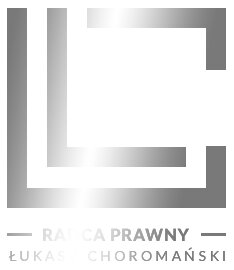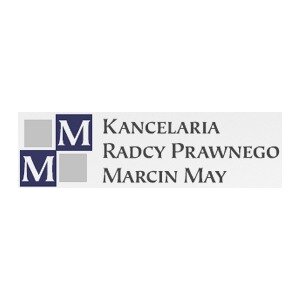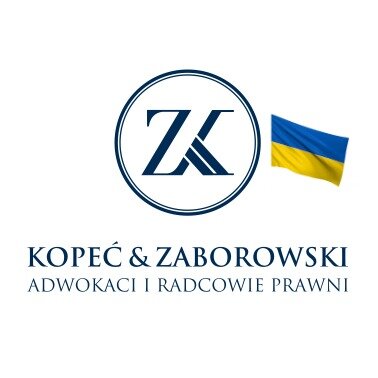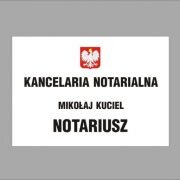Best Mortgage Lawyers in Poland
Share your needs with us, get contacted by law firms.
Free. Takes 2 min.
Free Guide to Hiring a Real Estate Lawyer
Or refine your search by selecting a city:
List of the best lawyers in Poland
About Mortgage Law in Poland
The mortgage system in Poland provides a path for individuals to purchase real estate with the support of financial institutions. The legal framework surrounding mortgages is primarily governed by the Civil Code, the Mortgage and Land Register Act, and specific banking regulations. Mortgages in Poland are typically loans that require collateral, usually the property being financed, to secure the debt. The process involves registering the mortgage with the Land and Mortgage Register to legitimately link it to the property.
Why You May Need a Lawyer
Navigating the mortgage process can be complex, and there are several scenarios where legal assistance may be necessary. Common situations include:
- Understanding and negotiating the terms of a mortgage contract.
- Resolving disputes with financial institutions regarding mortgage terms or changes.
- Assistance with the registration of mortgage rights in the Land and Mortgage Register.
- Resolving title issues or discrepancies related to the property.
- Assisting with the foreclosure process in the event of default.
- Guiding expatriates or foreigners through additional legal requirements.
Local Laws Overview
Several key aspects of local laws are relevant to mortgages in Poland:
- Civil Code: Establishes the general principles of contractual obligations, including those related to mortgage agreements.
- Mortgage and Land Register Act: Governs the registration of mortgages and details the procedural aspects of maintaining the Land and Mortgage Register.
- Consumer Credit Act: Protects the rights of consumers obtaining mortgage loans, providing clear rules on information disclosure and borrower rights.
- Banks and Financial Institutions Regulations: Outline the requirements for banks issuing mortgage loans, including risk assessments and financial stability checks.
Frequently Asked Questions
What is the typical duration of a mortgage loan in Poland?
Most mortgage loans in Poland have a duration of 20 to 35 years, depending on the borrower's financial situation and preferences.
Do I need to register a mortgage in Poland?
Yes, all mortgages in Poland must be registered in the Land and Mortgage Register to officially attach the mortgage to the property.
What is the maximum loan-to-value (LTV) ratio allowed in Poland?
The maximum LTV ratio typically ranges from 80% to 90%, meaning you need a down payment of at least 10% to 20% of the property value.
Can foreigners obtain mortgages in Poland?
Yes, foreigners can obtain mortgages in Poland, though additional legal requirements and conditions may apply, especially regarding land ownership.
What happens if I default on my mortgage payments?
If you default on your mortgage, the bank may initiate foreclosure proceedings to recover the debt by auctioning the property.
Are there any government programs to assist mortgage borrowers?
Yes, the Polish government occasionally offers programs like subsidized loans for first-time buyers or families with home purchase assistance.
How are interest rates on mortgages determined?
Mortgage interest rates in Poland are typically variable and linked to a benchmark, such as the WIBOR rate, influenced by market conditions.
Can I change the terms of my mortgage after signing?
Changes can be made through negotiation with your lender, though it often involves fees and reassessments of your financial situation.
Is it possible to repay a mortgage early in Poland?
Yes, early repayment is possible, though it may incur compensation fees defined in your mortgage agreement.
What is a building savings account?
A building savings account is a form of savings specifically earmarked for financing home purchases or construction, often offering favorable loan conditions later.
Additional Resources
For further assistance on mortgage-related legal issues in Poland, consider consulting the following resources:
- The Office of Competition and Consumer Protection for consumer rights.
- The National Bank of Poland for economic and financial guidelines.
- Local Notary Offices for assistance with property transactions.
- The Polish Bank Association for advice from mortgage lenders.
- Legal Aid Organizations, which may provide free or low-cost legal advice on mortgage matters.
Next Steps
If you require legal assistance with a mortgage in Poland, consider the following steps:
- Consult a Lawyer: Seek professionals with expertise in Polish mortgage and property law.
- Review Your Contract: Have your mortgage agreement reviewed for fairness and legal compliance.
- Gather Documentation: Prepare all relevant documents, including loan agreements and property records, for legal assessment.
- Contact Local Authorities: Reach out to local governmental or consumer protection agencies for advice if applicable.
- Consider Mediation: Mediation can be a cost-effective way to resolve disputes without litigation.
Lawzana helps you find the best lawyers and law firms in Poland through a curated and pre-screened list of qualified legal professionals. Our platform offers rankings and detailed profiles of attorneys and law firms, allowing you to compare based on practice areas, including Mortgage, experience, and client feedback.
Each profile includes a description of the firm's areas of practice, client reviews, team members and partners, year of establishment, spoken languages, office locations, contact information, social media presence, and any published articles or resources. Most firms on our platform speak English and are experienced in both local and international legal matters.
Get a quote from top-rated law firms in Poland — quickly, securely, and without unnecessary hassle.
Disclaimer:
The information provided on this page is for general informational purposes only and does not constitute legal advice. While we strive to ensure the accuracy and relevance of the content, legal information may change over time, and interpretations of the law can vary. You should always consult with a qualified legal professional for advice specific to your situation.
We disclaim all liability for actions taken or not taken based on the content of this page. If you believe any information is incorrect or outdated, please contact us, and we will review and update it where appropriate.
Browse mortgage law firms by city in Poland
Refine your search by selecting a city.
















